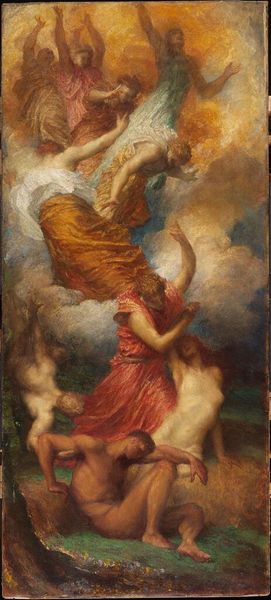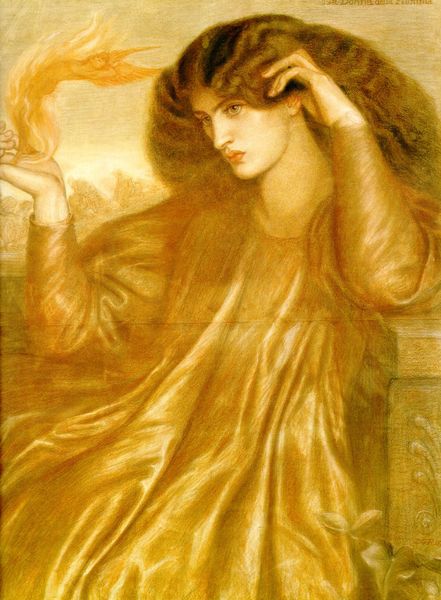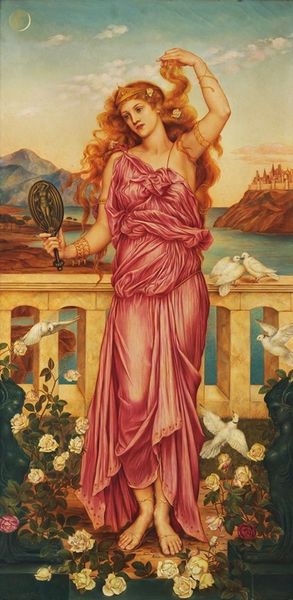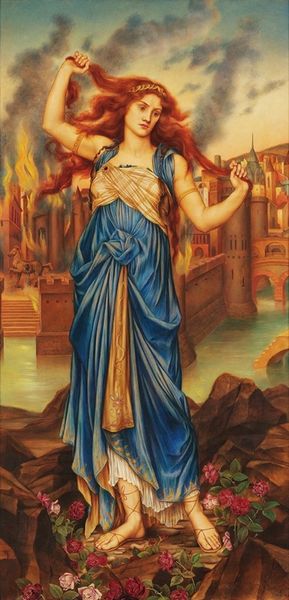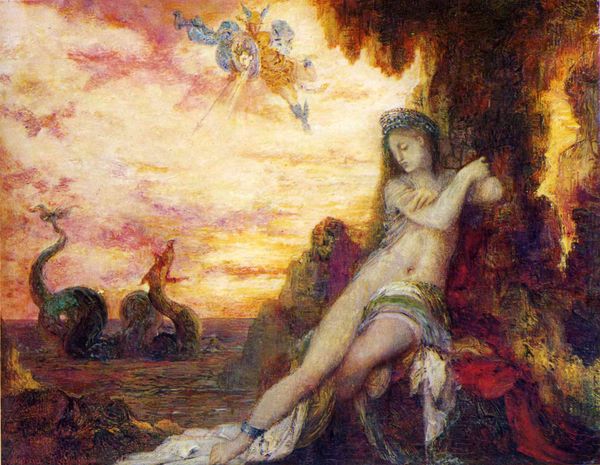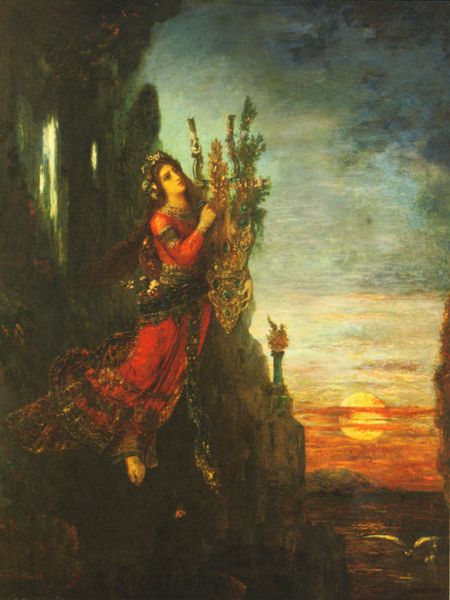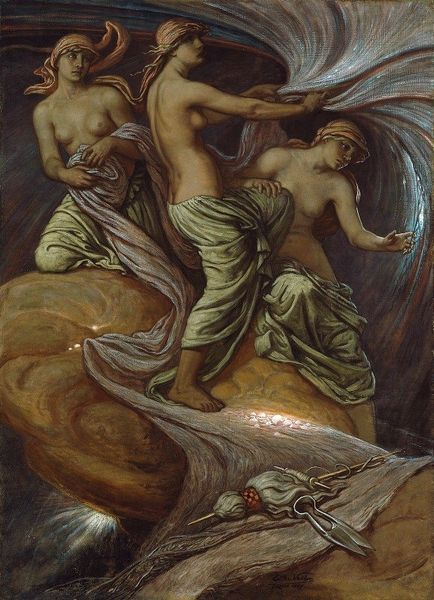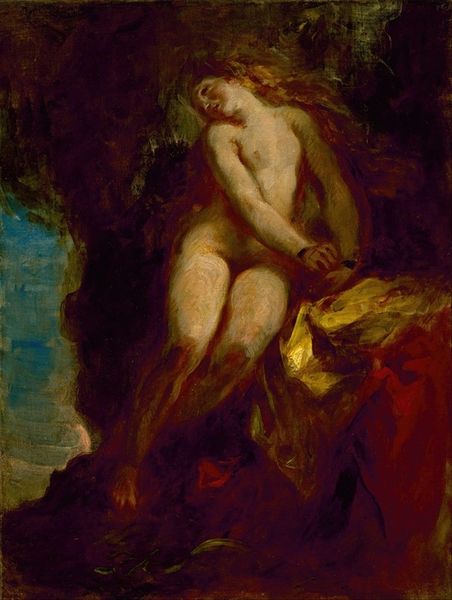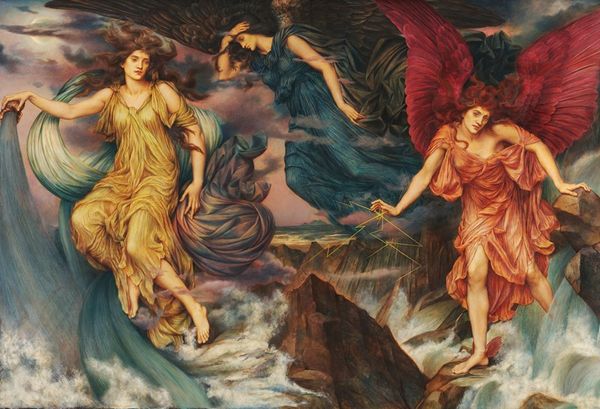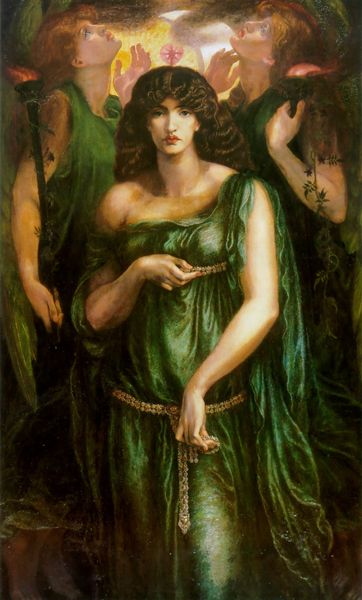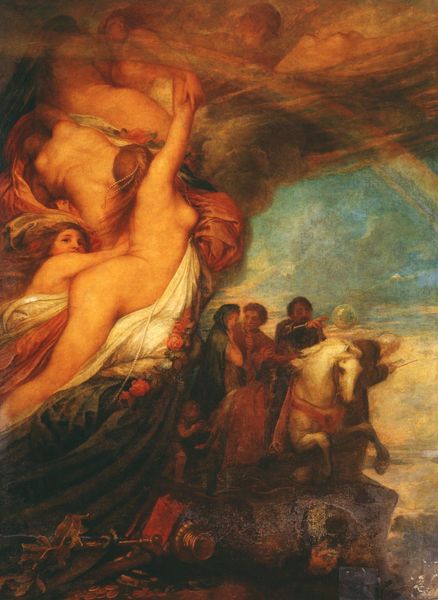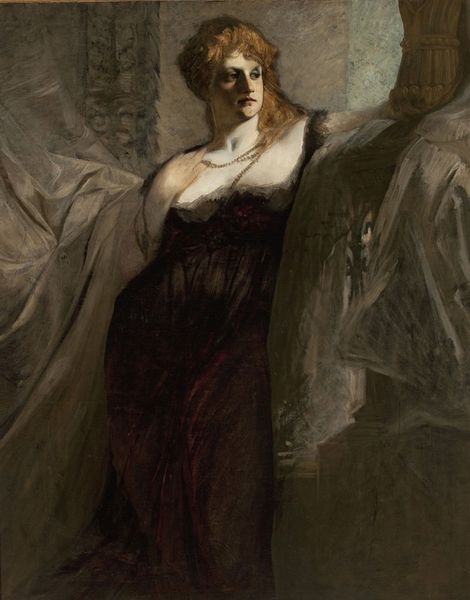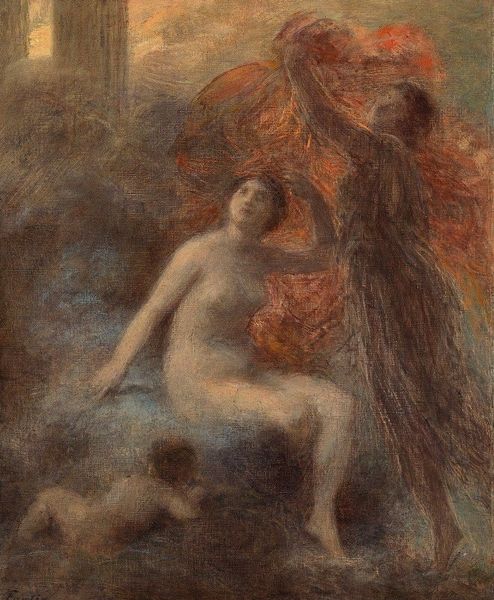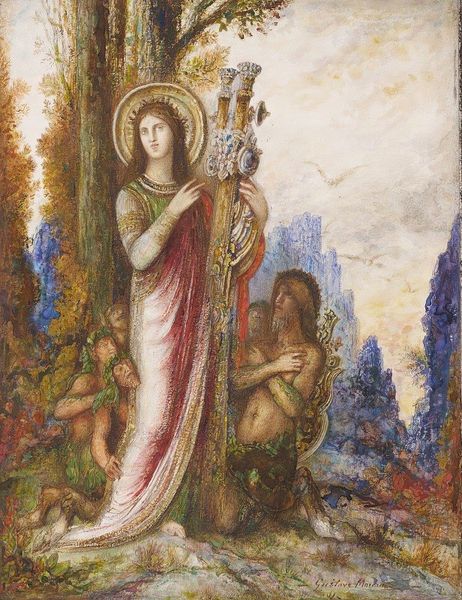
Dimensions: support: 764 x 624 mm
Copyright: CC-BY-NC-ND 4.0 DEED, Photo: Tate
Editor: This is Richard Cosway’s "A Lady (? Harriet Mellon) as a Sibyl," whose date is unknown, held at the Tate. I’m struck by how the vibrant reds and oranges dominate the scene. How do you interpret the material choices and composition? Curator: Cosway's work reveals much about the materials accessible and valued in his time. Consider the pigments: where were they sourced? How did their cost influence Cosway's patronage and artistic choices? The social context of the sitter is relevant: what status did this “lady” hold and how might Cosway use her image to elevate his own reputation? Editor: So, it's not just about aesthetics but about the economics and social dynamics of art production? Curator: Precisely! The canvas, the paint, the sitter’s garments, all speak to the material culture of Cosway’s era, reflecting the labor and consumption habits of the time. Editor: That definitely gives me a new perspective on how to view art! Thanks!
Comments
tate 10 months ago
⋮
http://www.tate.org.uk/art/artworks/cosway-a-lady-harriet-mellon-as-a-sibyl-t04114
Join the conversation
Join millions of artists and users on Artera today and experience the ultimate creative platform.
tate 10 months ago
⋮
Cosway's speciality was full-length miniature portraits in pencil, the faces finished in delicate watercolour. Here he tackles a portrait in a rather more ambitious format, presenting the young sitter as the muse of dancing or, perhaps, of lyric poetry, with attendant putti. The idea of depicting modern personalities in this classical disguise had been recommended by Sir Joshua Reynolds as an appropriate means of conferring intellectual dignity on pictures of pretty young ladies. This is an unfinished sketch, but as in Cosway's miniatures the face has been accorded detailed attention. Gallery label, August 2004
